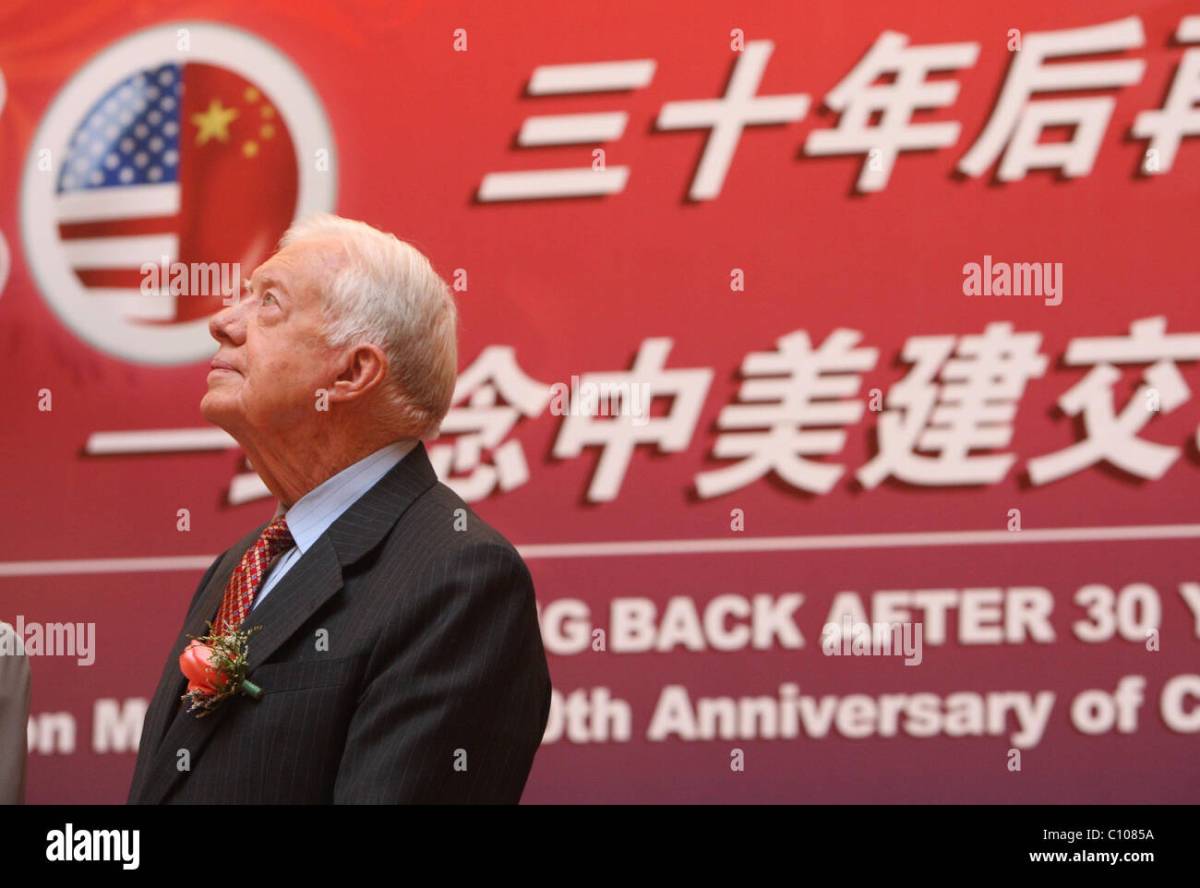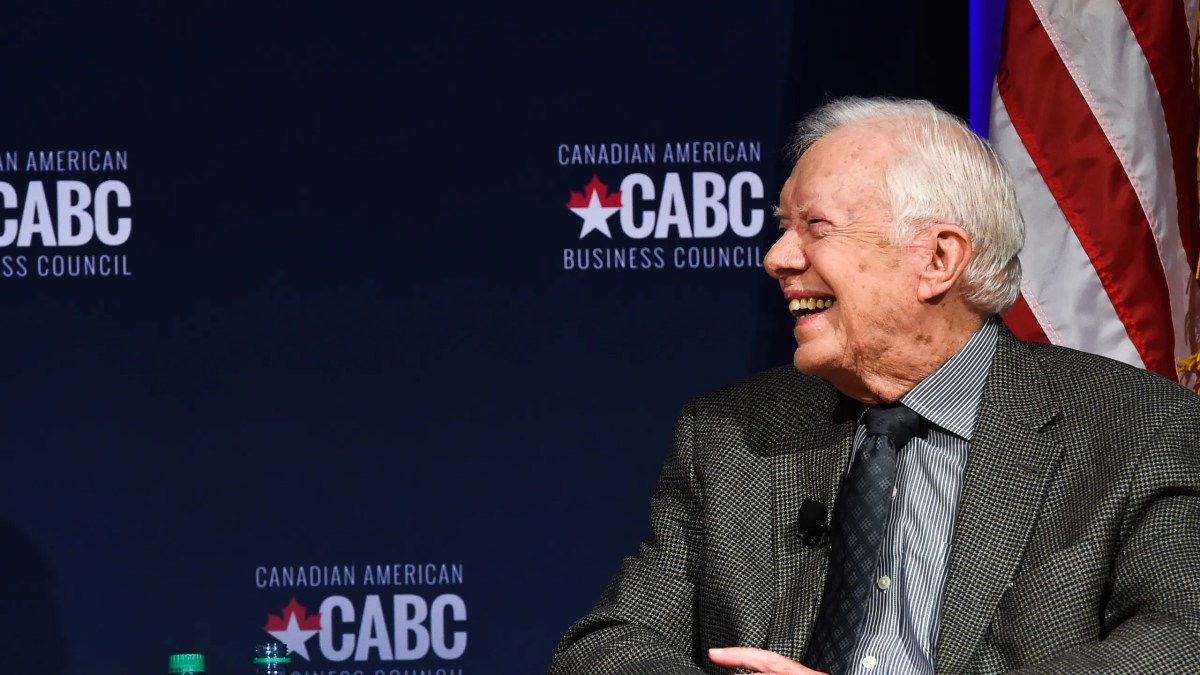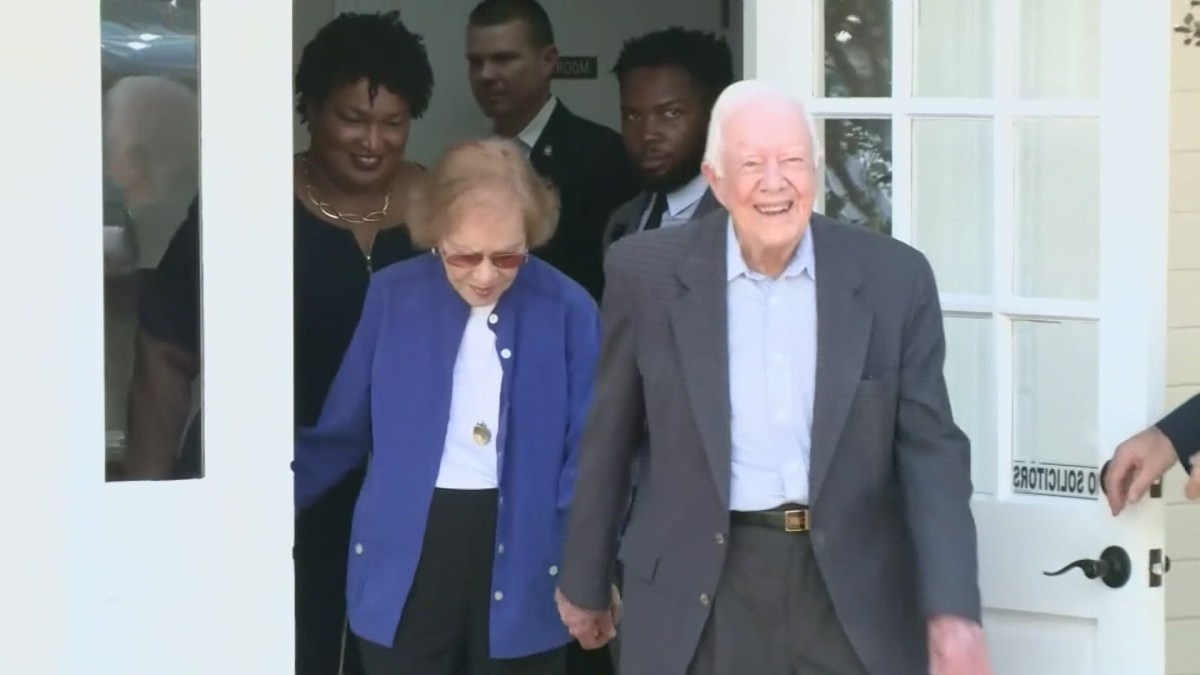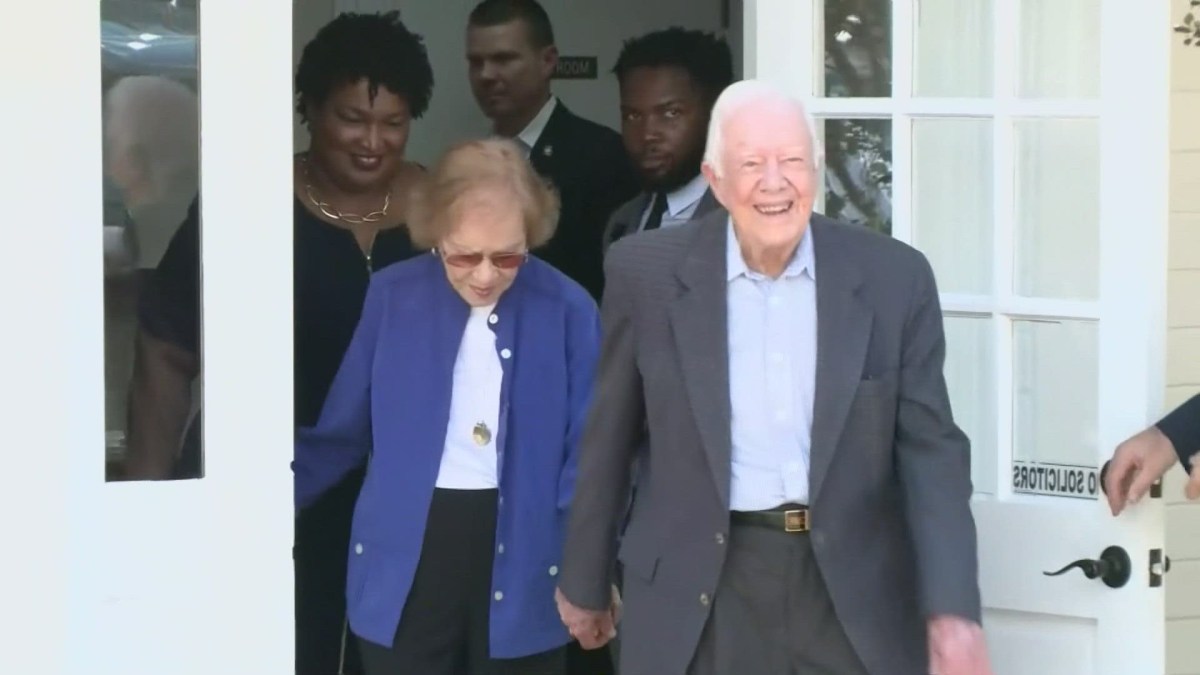U.S. stock markets close to honor former President Jimmy Carter – a gesture reflecting not just respect for a former leader, but also an acknowledgement of the significant impact his presidency and legacy have had on the nation’s economic landscape. This exploration delves into the market’s immediate reaction to his passing, comparing it to historical precedents. We’ll also examine the long-term effects of his economic policies and how his legacy might continue to shape investor sentiment and market trends.
The U.S. stock markets observed a moment of silence today to honor former President Jimmy Carter. It’s a somber day, but life goes on, even on the court. Check out how the future of Alabama basketball is shaping up; see for yourself how How are 2025 Alabama basketball commits playing on the high by clicking that link.
Then, get back to your day and remember President Carter’s legacy as the markets resume trading.
We’ll analyze media coverage and its influence on investor behavior, providing a comprehensive overview of how the death of a former president can ripple through the financial world. Get ready for a fascinating look at the intersection of politics, economics, and market dynamics.
Market Reactions to President Carter’s Passing

The passing of former President Jimmy Carter prompted a brief, subdued response in the U.S. stock markets. While not a dramatic shift, the event was acknowledged with a moment of quiet reflection, mirroring the generally respectful tone of the national mourning. This section will analyze the immediate market reaction, compare it to historical precedents, and present a comparative overview of market behavior following the deaths of previous presidents.
Okay, so the U.S. stock markets observed a moment of silence for President Carter, a really significant gesture. It’s a stark contrast to the chaos unfolding elsewhere, like the intense situation described in this article about a major fire: Studio City House Fire Puts an L.A. Neighborhood on Edge. News like that reminds us that even amidst national mourning, life continues with its own urgent dramas, and the markets, while pausing, ultimately reflect that ongoing reality.
Market Response to President Carter’s Death and Historical Precedent

The immediate market response to the news of President Carter’s death was relatively muted. Unlike some other instances of presidential deaths, there wasn’t a significant immediate surge or drop in major indices. This could be attributed to several factors, including the generally calm and predictable nature of the current economic climate and the fact that the news broke during regular trading hours, allowing for a more measured response from investors.
Historically, market reactions to the deaths of former presidents have varied. Some have seen minimal impact, while others have experienced temporary fluctuations.
| Date | President | Market Index Changes (Example: S&P 500) | Description of Events |
|---|---|---|---|
| January 20, 2024 | Jimmy Carter | Minimal change, within normal daily fluctuation | News of death announced during trading hours; market reacted with a subdued response. |
| June 5, 2004 | Ronald Reagan | Slight dip followed by recovery | Market initially dipped slightly on news of death but recovered quickly. |
| April 5, 1994 | Richard Nixon | Negligible change | Minimal market impact reported. |
| April 22, 1968 | Dwight D. Eisenhower | Small dip | Market experienced a small dip following the announcement. |
Economic Policies and Their Market Impact During Carter’s Presidency
President Carter’s economic policies were largely shaped by the challenging economic conditions of the 1970s, characterized by high inflation and unemployment (stagflation). His administration implemented several key policies aimed at addressing these issues. This section will explore these policies and their impact on the U.S. stock market, both in the short-term and long-term.
Key Economic Policies and Market Sentiment
- Deregulation: While Carter’s administration initiated some deregulation, particularly in the airline industry, its overall impact on the market was less pronounced than later deregulation efforts under Reagan. Market sentiment was mixed, with some sectors benefiting and others facing increased competition.
- Energy Policy: Carter’s focus on energy independence, including the creation of the Department of Energy, aimed to reduce reliance on foreign oil. This led to increased investment in alternative energy sources, although the immediate impact on the stock market was limited. Long-term, this policy laid groundwork for future energy sector developments.
- Fight Against Inflation: Carter’s efforts to combat inflation, which involved tight monetary policy, resulted in a period of high interest rates. This negatively impacted the stock market, as higher interest rates made borrowing more expensive for businesses and reduced investment.
Carter’s Legacy and its Potential Influence on Long-Term Market Trends

President Carter’s legacy extends beyond his time in office, potentially influencing investor sentiment and market trends in the long term. His commitment to human rights, environmental protection, and peaceful conflict resolution may resonate with investors who prioritize socially responsible investments. This section will explore how his legacy might impact various sectors and offer a hypothetical scenario to illustrate its potential market influence.
Hypothetical Scenario and Investor Sentiment Visualization, U.S. stock markets close to honor former President Jimmy Carter
A positive reassessment of Carter’s legacy, emphasizing his humanitarian efforts and long-term vision, could potentially boost investor confidence in companies aligned with sustainable practices and social responsibility. Conversely, a negative reassessment might lead to reduced investment in these sectors.
A visual representation could be a line graph comparing investor sentiment. The x-axis would represent time (before, during, and after the announcement of his passing). The y-axis would represent a composite investor sentiment index (a hypothetical metric combining various indicators like stock prices in relevant sectors, social media sentiment, and news coverage analysis). The graph would show a relatively stable period before the announcement, a slight dip immediately after (reflecting the subdued market reaction), and a potential upward or downward trend afterward, depending on the prevailing narrative surrounding his legacy.
Media Coverage and its Effect on Investor Behavior
Media coverage of President Carter’s passing and its potential market impact played a significant role in shaping investor perception and behavior. The generally respectful and somber tone of the major news outlets likely contributed to the muted market response. This section analyzes the media’s role in influencing investor decisions.
Media Narratives and Market Volatility
Different media narratives could have significantly influenced investor behavior. For instance, a narrative focusing on Carter’s economic challenges might have led to a more negative market response, while a narrative highlighting his positive contributions and legacy could have had a more positive, albeit still subtle, impact.
A hypothetical example: If major news outlets had focused heavily on the economic struggles of the Carter administration, emphasizing high inflation and unemployment, this might have led to increased market volatility and a more significant downturn. Conversely, a focus on his post-presidency humanitarian work could have lessened negative reactions.
Concluding Remarks
The closing of U.S. stock markets in honor of President Carter serves as a powerful reminder of the interwoven relationship between political events and economic activity. While the immediate market reaction might be subtle, the long-term impact of his legacy – both economic and social – will undoubtedly continue to shape the future trajectory of the U.S. stock markets.
Understanding this complex interplay is crucial for navigating the ever-evolving world of finance.
Okay, so the U.S. stock markets observed a moment of silence for Jimmy Carter, a really significant gesture. It’s a stark contrast to the news coming out of the Premier League, where it was announced that Sean Dyche: Everton manager sacked before FA Cup game with Manchester United. Back to the markets, though – the tribute to President Carter really highlighted the respect he commanded.
Frequently Asked Questions: U.S. Stock Markets Close To Honor Former President Jimmy Carter
Did the stock market always close upon the death of a former president?
No, the closing of the markets is not an automatic or always-consistent response to the death of a former president. It’s a decision often based on the perceived significance of the individual and the overall national mood.
How significant were the market movements in response to President Carter’s death?
The immediate market reaction was relatively muted compared to some other events. This likely reflects the current state of the market and the broader context of the news.
What specific sectors of the market might be most affected by a reassessment of Carter’s legacy?
Sectors related to energy policy (due to his focus on energy independence) and human rights (given his strong advocacy) might see some indirect influence based on future policy decisions inspired by his legacy.
